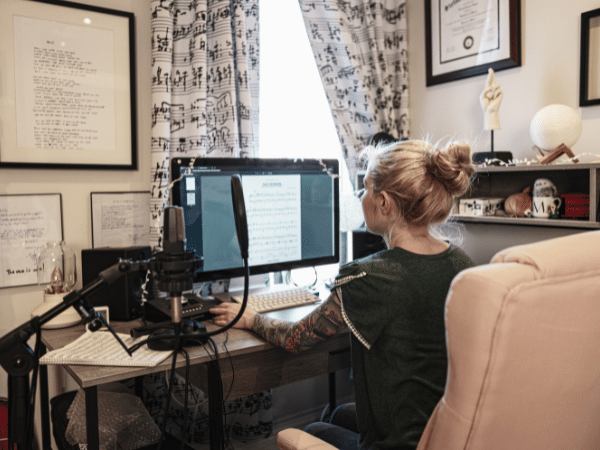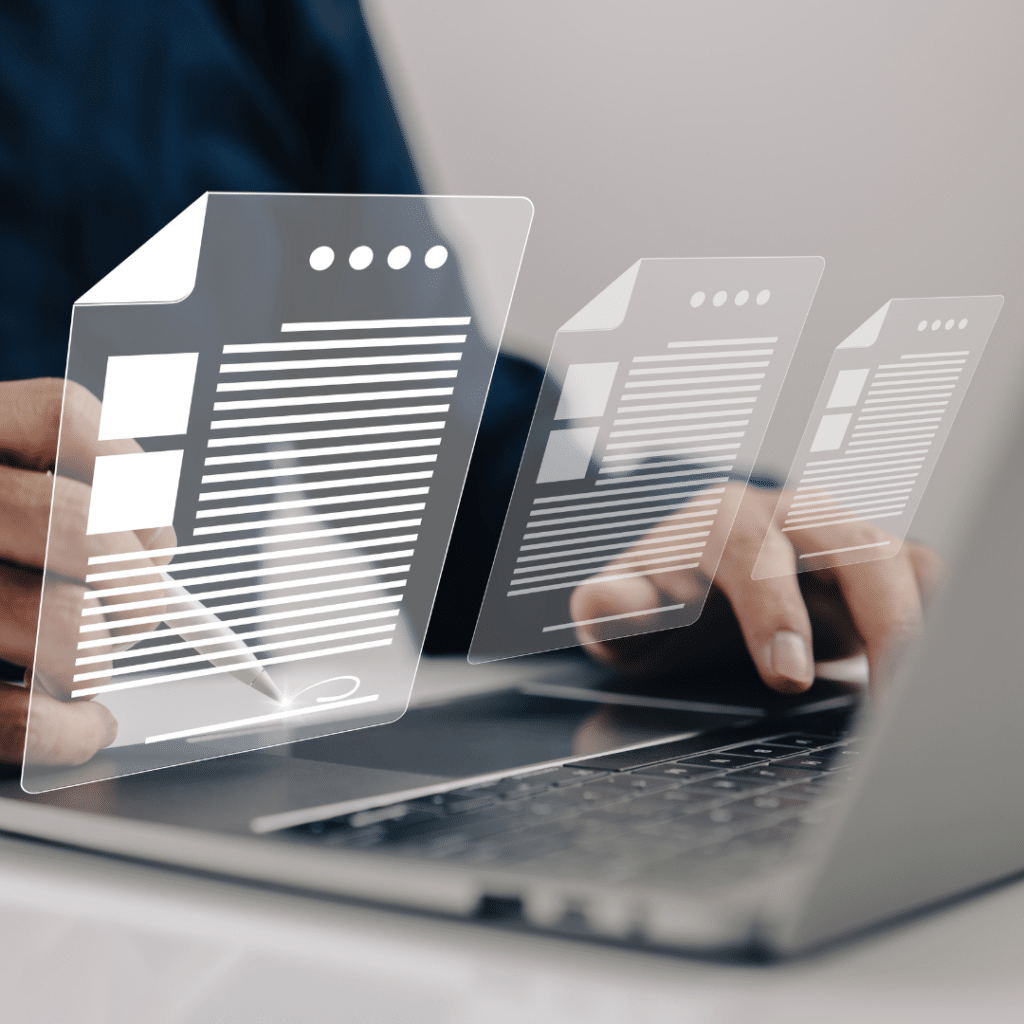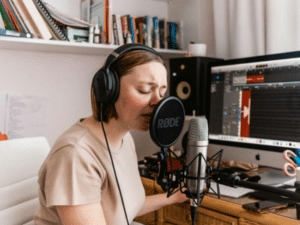Protecting Your Art: Intellectual Property Rights for Musicians
By: WhisperRoom™
June 21, 2024


Being a professional musician or producer is a multifaceted career path. You’re not just performing, but also carefully strategizing ways to create and maintain a business. Indeed, just like other entrepreneurs, you’ll need to find ways to mitigate risks. Alongside protecting your hearing, physical health, and reputation, you’ll need to minimize the potential for your work to be stolen or misused.
Your intellectual property is probably your most valuable asset. It’s key to making both active and passive income, while also being the most direct communication of your unique talent and perspectives. To avoid theft and misuse affecting your career, you must take careful and decisive action.
The most common and legally enforceable way to protect your intellectual property is through copyrighting. Technically speaking, you own the copyright to your work as soon as you create it in a tangible medium. This may be in an audio recording or via written lyrics and musical notation. These materials can also be either physical or digital.
However, while you hold the copyright from the moment of creation, you certainly benefit from officially registering it. This creates a tangible record of your copyright, which can make it easier to prove should you need to enforce your rights. Works created in the U.S. need to be registered with the U.S. Copyright Office before an infringement lawsuit is brought. The earlier you do this, the stronger your case is likely to be.
Another element that helps you stay on top of your copyright is accurate record-keeping. This isn’t just about the paperwork related to registering the work. You should also hold dated documentation for every stage of the creation process. This can help address disputes related to plagiarism.
Adopting a reliable record management system can keep everything organized and legally compliant. Digital management platforms, like cloud storage and even personal servers, can be particularly useful. Firstly, you can easily search for records should you need to refer to them. Many platforms will also have robust security against theft or tampering. Importantly, from a copyright perspective, most systems automatically date and time stamp your records, enabling you to have definitive proof of creation.
Licensing your music is an increasingly accessible way to gain a passive income and turn your music into a business opportunity. Importantly, it can also be an effective method for protecting your intellectual property rights.
This is because by making licensing agreements, you’re granting permission for certain types of commercial use to a third party. Indeed, if you sign with a publisher, they will often actively seek out external licensors on your behalf. This is good because these licensing organizations have a stake in protecting your assets as they also make money from them. As a result, they will often play a role in tracking where uses and misuse of your work occur. Some of the licensing routes you can take include:
Publishers: Publishers will represent the songwriting aspects of your music. They collect mechanical royalties related to physical sales, performance royalties for covers, and sync royalties from licensing to TV shows and movies. As a result, they keep records of use across a variety of media.
Performing rights organizations: Performing rights organizations (PROs) — SESAC, ASCAP, and BMI — help ensure your intellectual property is protected from unauthorized and unpaid use by businesses that play music on their premises. Companies pay a fee to these organizations each year and record which songs they’ve played. The PROs then distribute a portion of the fees to relevant songwriters.

While licensing is a powerful tool, you’ll still need to keep on top of your admin concerning it. For instance, bad bookkeeping practices could have a variety of financial and legal consequences. Unless you keep financial records up-to-date, you might overlook revenue owed to you by licensing organizations or even make tax errors that could be costly.
It can also affect decision-making to pursue lawsuits if you can’t see whether or not you’ve received income from an organization. Therefore, it can be wise to utilize either an external accountant or bookkeeping software to keep track of where your licensing funds are coming from.
We’ve touched on the fact that copyright law grants you rights at the moment of creation. This doesn’t necessarily mean that you should be a passive owner of your intellectual property. While copyright, unlike trademarks, isn’t weakened if you don’t address infringements, not acting on breaches can send an unhelpful message. Not to mention that if you let one breach slide and seek to litigate another, you may find it more difficult to pursue your case.
This requires a certain amount of vigilance. It’s somewhat less likely that your work will be used without your permission on big movies or TV shows; they often have the budget to license. Rather, threats can be more common in digital domains. Make sure that you are identified as the copyright owner of recordings on platforms such as YouTube and Spotify. If people attempt to use your tracks on their content or channels, you’ll generally receive notifications. Importantly, act on these.
In cases of plagiarism, you’ll need to issue cease and desist notices. Standard forms of these are available online. However, if this doesn’t have positive results, it’s wise to take the matter further. Usually, cases that are likely to involve less than $30,000 in damages can take the more streamlined and cost-effective route of electronically filing with the Copyright Claims Board. Serious breaches, though, are best handled by an experienced intellectual property lawyer to be pursued through the federal courts.
Protecting your intellectual property rights safeguards your valuable assets and sources of income. It should involve various actions, from registering copyrights to actively addressing breaches. Taking these steps may sound involved and exhausting. Nevertheless, putting these protective systems in place before breaches occur can help lighten the load.
Don’t forget to share this post!

